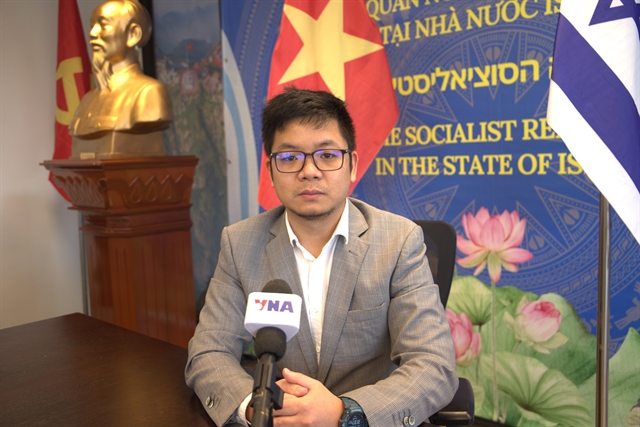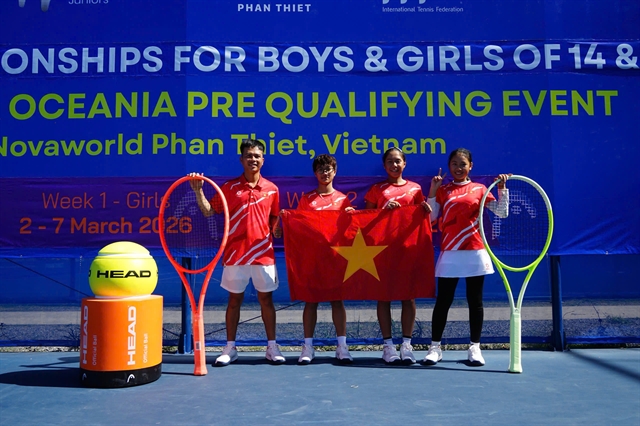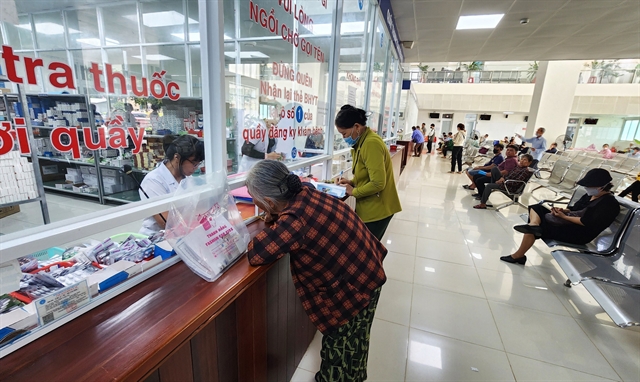 Opinion
Opinion
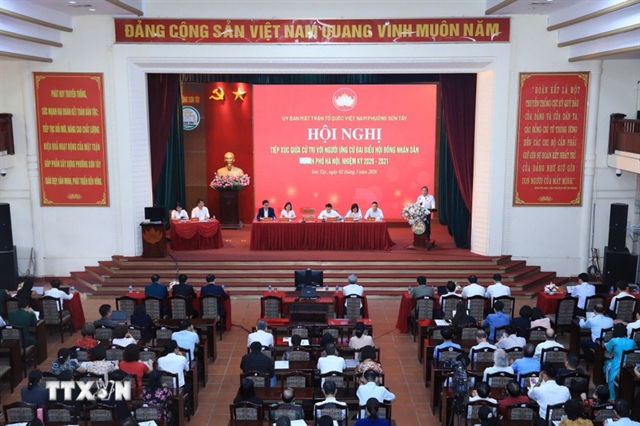
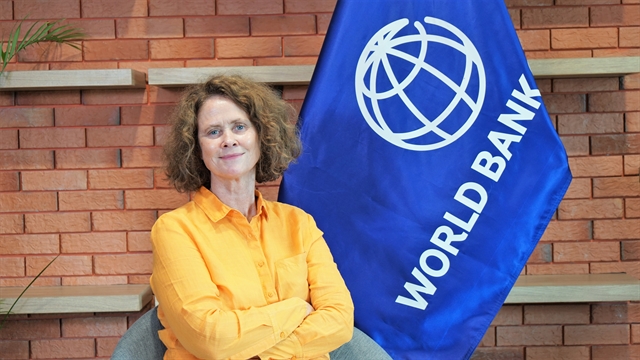
|
| Carolyn Turk, Country Director for the World Bank in Việt Nam |
By Lê Minh Hoan and Carolyn Turk *
Việt Nam’s agricultural sector was an early example of the success of the Đổi mới (Renewal) process, and its growth has significantly contributed to the country’s remarkable achievements in reducing poverty and ensuring food security. As Việt Nam’s agricultural production has become globally integrated, it now needs this productive sector to follow a green, low-carbon trajectory – not only to play a part in meeting the goal of net-zero greenhouse gas emissions by 2050, but also to sustain its success. Making agriculture green will also help Việt Nam lower costs and put less pressure on its natural resources. Ultimately, it will establish Việt Nam as a powerhouse in ecological agriculture, carbon neutrality, and as a transparent, responsible, and sustainable food supplier.
Việt Nam was one of the world’s poorest countries in the late 1980s and early 1990s, with 60 per cent of its population living below the poverty line. However, the Đổi mới policy transformed the country from a subsidised planned economy to a socialist-oriented market economy. By unlocking agricultural resources through the Land Law in 1993, Việt Nam was able to dramatically reduce poverty and balance food supply with demand by 2000. In subsequent years, Việt Nam pursued active international integration, joined the World Trade Organisation, and signed 17 free trade agreements. Việt Nam's agricultural products are now ubiquitous across global markets.
This achievement means that Việt Nam has not only ensured its domestic food security, but has also become an important contributor to global food security, exporting more than 6 million tonnes of rice per year, making it the third largest rice exporter in the world. Việt Nam is the world’s leading exporter of cashew nuts and pepper, and is among the top exporters of coffee, seafood, vegetables and timber products. Việt Nam's agricultural exports generate more than US$40 billion a year in export revenues.
The resilience of the agricultural sector has been a pillar of strength for the country during difficult times, as such the 2008-2009 global financial crisis or the COVID-19 pandemic. Steady agricultural production has also contributed to controlling inflation and ensuring inflows of foreign currency.
However, Việt Nam's robust agricultural productivity and output growth over the past three decades has been achieved through an intensive use of pesticides and chemical fertilisers, antibiotics for livestock, and water, among others. As a result, greenhouse gas emissions from agriculture have been increasing, accounting for 19 per cent of Việt Nam's total emissions in 2020, about half of which come from rice production. The sector’s environmental footprint has increased significantly.
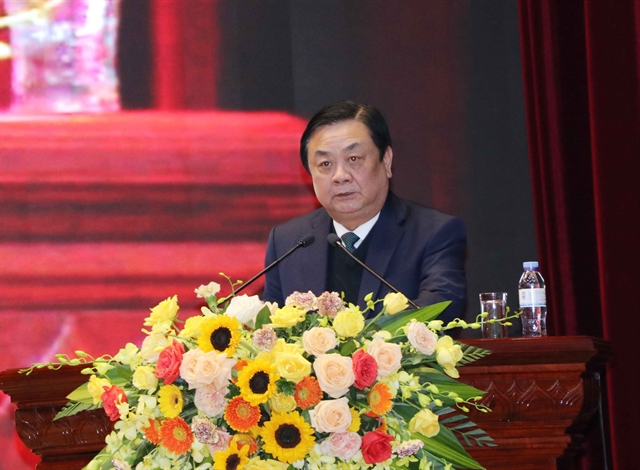
|
| Lê Minh Hoan, Minister of Agriculture and Rural Development |
Recognising that Việt Nam’s agricultural sector needs to move away from a reliance volume-based growth model dependent on the intensive use of chemical inputs and cheap labor, the 13th Party Congress established a new goal with a commitment to an "Ecological agriculture - Vibrant countryside- Innovative farmers" initiative. Việt Nam's President Nguyễn Xuân Phúc underscored this pledge at the United Nations Food System Summit in September 2021, calling for Việt Nam to become a "Transparent – Responsible – Sustainable" food supplier. Việt Nam’s Prime Minister Phạm Minh Chính further emphasised that the country’s environmental ambition by announcing the goal of achieving net zero emissions by 2050.
Việt Nam's agriculture also needs to go beyond commodity exports to meet global consumer demand for high quality agricultural goods produced in a socially responsible and environmental sustainability way. Producers have a right to safe working conditions and environmental and social safeguards. The sustainability of Việt Nam's agriculture depends on resource conservation, preserving biodiversity, reducing emissions, and adaptation to climate change.
These winds of change mean Việt Nam must seize opportunities to progress from agricultural production to agribusiness, from a productivity- and volume-driven approach to a value-centered approach, from resource extraction to resource enrichment, from mere self-sufficiency to full integration into global value chains. It is important to shift from local to global perspectives, and from short-term to long-term and sustainable thinking, and to green values that promote a green economy.
With this mindset, Việt Nam can aim to become an ecological and carbon-neutral agriculture powerhouse, rather than simply being a food volume powerhouse. As one of the countries with the richest biodiversity in the world, Việt Nam can demonstrate leadership through stewardship of its natural resources. As part of this transition, Việt Nam can aspire to become the Asian food and agribusiness innovation hub and for its agricultural products to move up the value chain.
With its geographic advantages and transportation infrastructure, with strengthened governance capacity and digital transformation, Việt Nam could also become an agricultural and food product processing and logistics center in the Asia-Pacific region.
To do this, Việt Nam’s agricultural sector needs support from central and local government, international and domestic organisations, communities, and individuals. It will be essential to improve the governance capacity of cooperatives and small and medium enterprises in rural areas. Farmers will need long-term and equitable access to resources, especially land, and special attention must be paid to vulnerable groups. Reforms to management and delivery of public investment support services will also be essential. Critically, the private sector needs to be incentivised to participate in sustainable and green investment, technical innovation, and public-private partnerships.
None of this will be possible without administrative reforms, the promotion of research and development in agriculture, and a digital transformation that supports agricultural product value chains through better traceability, improved food safety, standardisation of quality, and financial services.
Finally, achieving these ambitious goals will require deeper international integration, the development of innovation networks that strengthen cooperation in research, forecasting, and early warning systems for natural disasters and diseases. The sharing of best practices for sustainable management of land, water, biodiversity, forests, transboundary water resources and marine resources will also be invaluable.
Governance reform, innovation, and international integration are the three key elements that will turn Việt Nam's agriculture from a food-volume powerhouse into an ecological, carbon neutral agribusiness powerhouse and make it the “Transparent – Responsible – Sustainable” food supplier to the world.
With innovative thinking and joint action, we can make these ambitious goals possible. VNS
* Lê Minh Hoan is Minister of Agriculture and Rural Development
Carolyn Turk is the Country Director for the World Bank in Việt Nam.



